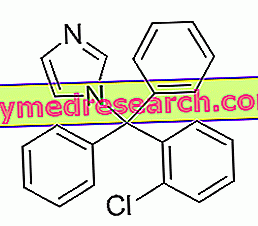Definition
Acetone is a transient ketosis, a momentary metabolic disorder. It occurs when the body lacks sugars, the first source from which the body draws energy.
Acetone is frequent especially in children and can be the consequence of different conditions, such as a diet rich in fat and low in sugar, inappetence or prolonged fasting (due, for example, to high fever or intestinal disorders). The body, having no more available sugars to extract the energy necessary for its functioning, is forced to burn fat as an alternative source. During this "combustion" (if it occurs in lack of sugars), some waste substances are produced in the liver: the ketone bodies (acetone, acetoacetic acid and 3-hydroxy-butyric acid).
Most common symptoms and signs *
- Acute abdomen
- Halitosis
- Conati
- Dehydration
- Abdominal pain
- Headache
- meningism
- Pallor
- He retched
Further indications
The ketone bodies can reach more or less toxic levels. In an attempt to reduce its plasma concentration, the body tries to eliminate them with urine and through breathing.
The first alarm bell, in fact, is represented by the breath that takes on a particular smell of rotten fruit. Then, the body reacts with repeated attacks of vomiting, stomach ache, headache, pallor and dehydration.
In general, acetone resolves within a couple of days with a fat-free diet and the replenishment of fluids lost through vomiting. Sugared beverages, such as tea, juices and fruit juices, are especially recommended so that the body can resume using sugars as a fuel.



